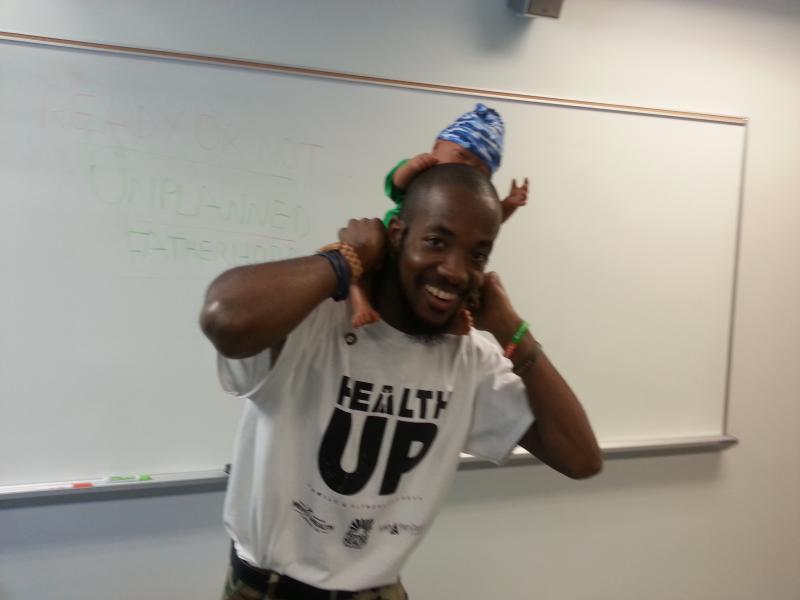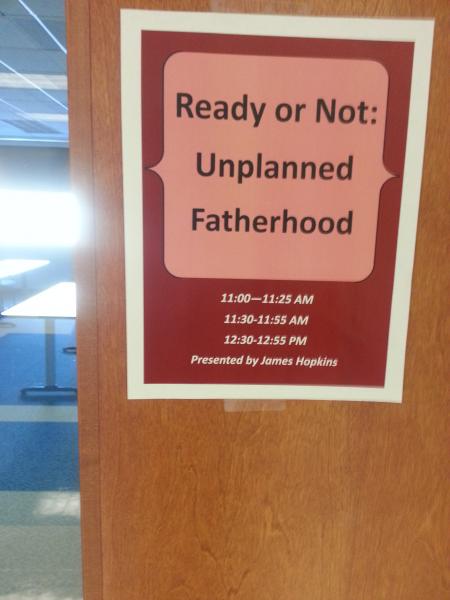Men’s Health: More Than Just A Subscription
 Men’s health is an important issue. Why is men’s health an issue in the first place? Men’s health is an issue because not all men go to the doctor regularly, a fact that is even more pronounced in communities of color and the underserved. It’s natural for men to deny that anything is wrong with them. If it isn’t life-threatening, many men have the tendency to try to live with their ailments and never seek treatment. Society tells men that they are supposed to be tough, fight through pain, and not talk about their illness or else will be seen as weak. There’s no room for vulnerability in masculinity. Well, men get breast cancer too! There are men who do go see their doctors and keep up with their health, but not enough are doing so. How do we tip the scales and make ‘Men’s Health’ more than just a monthly subscription? We, as men, have to be more proactive in helping ourselves “get our health up”, then we can help other men “get their health up”. How is Jacksonville, FL serving this purpose?
Men’s health is an important issue. Why is men’s health an issue in the first place? Men’s health is an issue because not all men go to the doctor regularly, a fact that is even more pronounced in communities of color and the underserved. It’s natural for men to deny that anything is wrong with them. If it isn’t life-threatening, many men have the tendency to try to live with their ailments and never seek treatment. Society tells men that they are supposed to be tough, fight through pain, and not talk about their illness or else will be seen as weak. There’s no room for vulnerability in masculinity. Well, men get breast cancer too! There are men who do go see their doctors and keep up with their health, but not enough are doing so. How do we tip the scales and make ‘Men’s Health’ more than just a monthly subscription? We, as men, have to be more proactive in helping ourselves “get our health up”, then we can help other men “get their health up”. How is Jacksonville, FL serving this purpose?
As a member of the National Health Corps - Florida (NHC-F) of AmeriCorps I have a unique opportunity to contribute in this effort. Earlier this month the Men’s Health Coalition and the Florida Department of Health-Duval (who formerly put on the annual Man Up health fair) partnered with Florida State College at Jacksonville (FSCJ-North) to bring the city the Health Up Family & Fitness Fair, where a smorgasbord of men’s health services were offered including prostate testing, diabetic and blood glucose screenings, pulse oximetry readings, etc. FSCJ also offered haircuts, massages, manicures, and even facials (men like to get pampered too!). I attended this great event and was able to teach one of many of the workshops available to all ages of men and boys from early teens to men in their 50’s. Among the other workshops at the event were: Being Your Own Boss, Staying Healthy for Sports, Civil Citations, Managing Medications, Healthy Relationships for Couples, and Screening & Treatment of Prostate Cancer.
 The workshop I led was called Ready Or Not: Unplanned Fatherhood. I talked about the definition of unplanned fatherhood and how it differs from an unintended pregnancy. I described how fathers have a health, legal, social, and financial responsibility for that baby regardless of whether they’re ready to take care of it or not. I discussed the good and bad consequences of each responsibility. However, I made sure to emphasize the financial aspect especially, within the first year of life of a newborn. I brought along my simulator baby Piaget (aka PJ) that cries, coos, and then cries some more to demonstrate how unpredictable babies can be. As much work as I had done planning my workshop, I didn’t realize how much my subject matter stood out from the rest of the workshops until I was waiting for my next session to start, waving back to the event goers walking by. It hit me that “Unplanned Fatherhood” can come off as taboo or unattractive because nobody wants to think about something they did not see coming, especially an unexpected pregnancy, for that matter.
The workshop I led was called Ready Or Not: Unplanned Fatherhood. I talked about the definition of unplanned fatherhood and how it differs from an unintended pregnancy. I described how fathers have a health, legal, social, and financial responsibility for that baby regardless of whether they’re ready to take care of it or not. I discussed the good and bad consequences of each responsibility. However, I made sure to emphasize the financial aspect especially, within the first year of life of a newborn. I brought along my simulator baby Piaget (aka PJ) that cries, coos, and then cries some more to demonstrate how unpredictable babies can be. As much work as I had done planning my workshop, I didn’t realize how much my subject matter stood out from the rest of the workshops until I was waiting for my next session to start, waving back to the event goers walking by. It hit me that “Unplanned Fatherhood” can come off as taboo or unattractive because nobody wants to think about something they did not see coming, especially an unexpected pregnancy, for that matter.
I believe it was much needed food for thought for the young men that had attended. I hope they are able to take this information and apply it as far as being proactive in preventing unplanned fatherhood in their lives. I hope they make use of various strategies like using birth control properly and practicing abstinence, which is the only 100 percent effective way to prevent an unintended pregnancy. Having a child is beautiful thing, but not when you’re still a child yourself.
This blog post was written by NHC FL member, James Hopkins.
James serves at the FDOH in Duval County as a Health Educator.